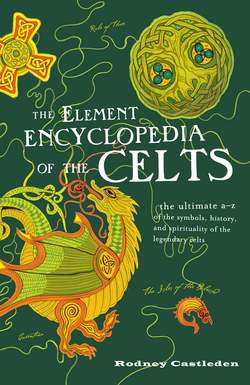Читать книгу The Element Encyclopedia of the Celts - Rodney Castleden - Страница 176
LEARNING
ОглавлениеCeltic society was highly structured and it allowed for the cultivation of learning and literature. There were professional classes who were responsible for their maintenance: the Druids, the bards, and a third order between them, known in Ireland as “the poets.”
In Ireland by the seventh century AD the Druids had disappeared, as they bore the brunt of the Church’s opposition, and the intermediate group, known as the filidh, were the sole inheritors of the druidic tradition. The filidh managed to establish a remarkable modus vivendi with the Church that enabled the two authorities to continue running side by side and were therefore able to maintain many of their ancient functions. The Irish bards suffered an eclipse too, as they limped on with a reputation as inferior rhymers.
In Wales, it was again the poets, or filidh, who emerged from the clash with Christianity in a position of strength, or at least with an enhanced and dignified reputation. Confusingly, the Welsh equivalents of the filidh were called bards.
According to Julius Caesar’s description, the Druids in Gaul were teachers and disciples of learning. They distrusted the written word, committing vast amounts of poetry to memory. Caesar said the period of study necessary to become a Druid lasted 20 years. Similarly in Ireland, it took at least seven years to qualify for the filidh.
We know the Druids had views about the size and nature of the universe, but unfortunately we do not know what those views were.
